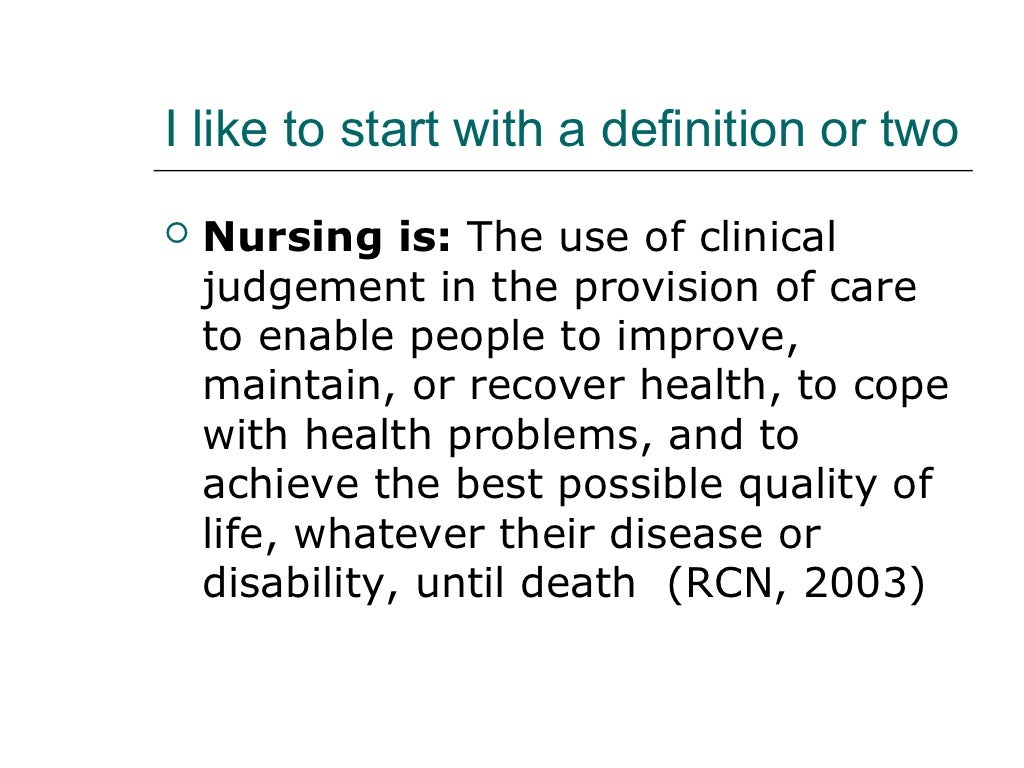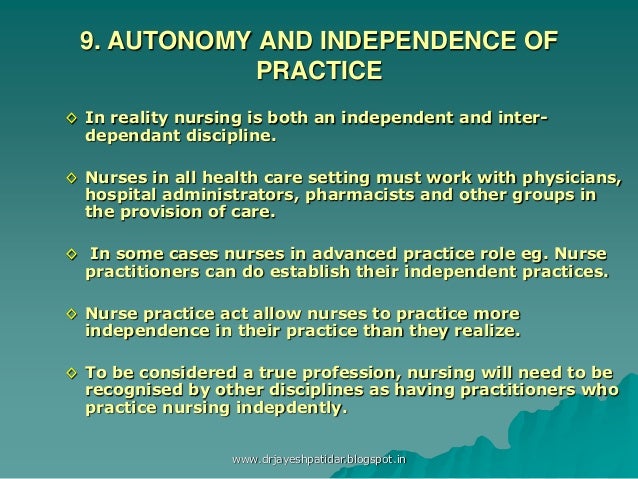
- Ethical principle of autonomy in nursing full#
- Ethical principle of autonomy in nursing code#
- Ethical principle of autonomy in nursing professional#
Though surgeons use anestheti cs during surgery, a patient feels pain after the surgery. An example of non-maleficence is a case where a patient needs surgical treatment. On the other end of the spectrum, the goal of health care workers is to save the life of the patient by all means possible. Additionally, each the health care professionals must inform the patient of any potential good or bad effects from any treatment, so the patient can make the best decision for themselves if able to. Such a case is considered maleficence, because the physician had other better options. Later, the patient suffers from adverse drug effects. The attending doctor chooses to prescribe one of those medications that has possible allergic effects without informing the patient. There are several solutions to treat the complication, such as different prescription medications. Lastly, good outcomes should always outweigh the bad.įor example, a patient comes in with a health complication. Third, a good effect should never be a result of the wrong action. Second, every action should have a positive benefit.
Ethical principle of autonomy in nursing professional#
Whether knowingly or unknowingly, some decisions can cause harm to patients, the community, or even other health care workers, and it's up to each health care professional to be aware of how each of their decisions can impact others.
Ethical principle of autonomy in nursing code#
According to the ANA code of ethics, all health care workers should carefully evaluate each situation before making decisions. Non-maleficence means that you as a health care professional must do no harm. Of the four principles of health care ethics, non-maleficence is the one that is generally the one most commonly prioritized. Being aware of a patient's culture, religious beliefs, past experiences, and likes or dislikes can help guide you in determining what might be good for them. Before acting with beneficence in mind, you have to learn and consider each patient's specific wants, needs, and experiences. The difficulty with this principle often lies in defining what good means to each patient. Even the smallest positive change can have a big impact on a patient's wellbeing. Most people who choose health care as a profession do so because they want to help other people, and part of the profession is seeking out every way that you can help make a patient's treatment experience a little bit better, safer, and more effective. The principle encourages health care workers to consciously invest the time and effort to make sure that each patient benefits in each situation. This principle acts as an obligation for nurses to protect their patients from harm by removing and preventing bad situations and promoting good ones.Īt its core, beneficence is an essential principle of health care ethics and ethical selfishness.

The actions of any health care provider should always bring positivity.īeneficence should not be confused with the closely related ethical principle of non-maleficence, which states that one should do no harm to patients. #2 - Beneficenceīeneficence is the act of showing kindness or mercy. So it's a health care professional's responsibility to help empower each patient to take control of their own health care.Īutonomy fosters self-respect, self-knowledge, and self-worth. Additionally, the best course of action for one patient could be detrimental for another, even if they share the same signs and symptoms. Patients and caregivers will often have contrasting beliefs, customs, and ideas. Health care professionals like nurses should not try to influence a patient’s decision based on that nurse's own personal beliefs however, it's their responsibility to ensure that patients are educated and informed, so they can make the best decision for themselves. Not all medical professionals agree with certain treatment options and medication processes.Īs such, this principle addresses the clause of the best treatment option that the health care provider made independently.


Every individual has different beliefs and experiences that shape their opinions on a variety of topics, and the health care profession is no different. This principle is vital in the delivery of evidence-based care.

Ethical principle of autonomy in nursing full#
Ideally, autonomy aims to improve patient welfare by allowing the patient to be in full command of their treatment and care as much and as often as possible. The practice of autonomy prevents health care professionals from potentially coercing or persuading the patient to take a specific action or treatment plan that might not be in their best interest. In health care, autonomy is the right or freedom of the patient to maintain control of their body before and after treatment. The literal meaning of autonomy and the medical definition of autonomy have their differences and similarities.Īt its base definition, autonomy is the control that you exercise when making individual decisions, especially regarding your well-being.


 0 kommentar(er)
0 kommentar(er)
